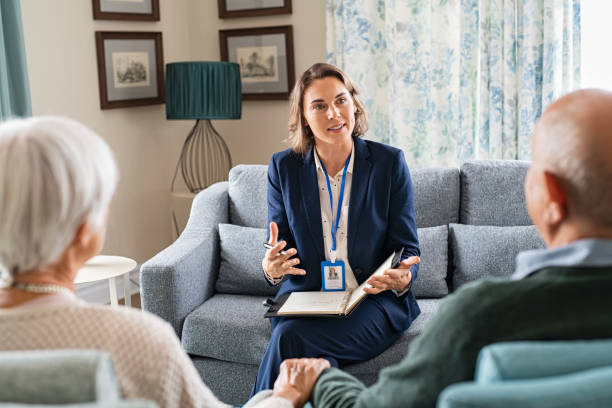In the intricate tapestry of human relationships, challenges and conflicts are inevitable. Whether between romantic partners, family members, or friends, navigating the complexities of interpersonal dynamics can be a daunting task. Relationship counselling emerges as a valuable resource, offering a supportive and constructive space for individuals and couples to explore, understand, and improve their connections. This essay delves into the essence of relationship counselling, its objectives, methodologies, and the transformative impact it can have on fostering healthy relationships.
Definition and Purpose of Relationship Counselling:
Relationship counselling, also known as couples therapy or marriage counselling, is a therapeutic process designed to assist individuals and couples in addressing and resolving conflicts, improving communication, and enhancing overall relationship satisfaction. The primary purpose is to provide a safe and neutral environment where participants can express their thoughts and feelings openly, fostering a deeper understanding of themselves and their partners.
Objectives of Relationship Counselling:
The overarching goal of relationship counselling is to facilitate positive change within relationships. Some specific objectives include:
. Improving Communication Skills: Effective communication is the cornerstone of healthy relationships. Counselling helps individuals and couples develop better communication strategies, enabling them to express themselves more clearly and listen empathetically.
- Conflict Resolution: Relationship counsellors guide clients in navigating conflicts constructively. By identifying underlying issues and teaching conflict resolution skills, counselling aims to transform confrontations into opportunities for growth and understanding.
- Building Trust and Intimacy: Trust is fundamental to any relationship, and counselling endeavors to rebuild and strengthen trust when it has been compromised. Intimacy, both emotional and physical, is also nurtured through the therapeutic process.
- Enhancing Self-Awareness: Understanding oneself is crucial in building meaningful connections. Counselling encourages introspection, helping individuals recognize their own needs, values, and patterns of behavior that may impact their relationships.
Methodologies Employed in Relationship Counselling:
Relationship counsellors utilize a variety of therapeutic approaches tailored to the unique needs of each client or couple. These may include:
- Cognitive-Behavioral Therapy (CBT): Focused on identifying and changing negative thought patterns and behaviors, CBT is often used to address communication issues and modify destructive relationship patterns.
- Emotionally Focused Therapy (EFT): EFT emphasizes emotional bonding, aiming to create a secure and resilient connection between partners by exploring and validating emotions.
- Narrative Therapy: This approach views problems as separate from individuals and encourages the reshaping of personal narratives, empowering clients to redefine their relationship stories.
- Gottman Method: Developed by Drs. John and Julie Gottman, this method focuses on strengthening relationships through enhancing friendship, managing conflict, and creating shared meaning.
The Transformative Impact of Relationship Counselling:
The impact of relationship counselling extends beyond conflict resolution; it often leads to transformative changes in individuals and couples. These changes may include:
- Increased Self-Awareness: Participants gain a deeper understanding of their emotions, motivations, and communication styles, fostering personal growth and self-awareness.
- Improved Communication Skills: Through guided exercises and open dialogue, counselling helps individuals develop more effective communication strategies, leading to better understanding and connection.
- Strengthened Emotional Bond: Relationship counselling emphasizes the importance of emotional connection. Couples often report feeling more emotionally connected and supported after engaging in therapy.
- Conflict Resolution: Couples learn constructive ways to approach and resolve conflicts, transforming disagreements into opportunities for understanding and compromise.
- Revitalized Intimacy: By addressing underlying issues and enhancing emotional closeness, counselling can contribute to the revitalization of physical and emotional intimacy within a relationship.
Overcoming Stigmas Associated with Counselling:
Despite its proven effectiveness, there is sometimes a stigma attached to seeking relationship counselling. It is crucial to debunk these stigmas and promote a more positive view of counselling as a proactive and empowering step towards building healthier relationships. Normalizing the idea that seeking help is a sign of strength rather than weakness is an essential aspect of overcoming these barriers.
Conclusion:
Relationship counselling plays a vital role in nurturing and sustaining healthy connections. By providing a platform for introspection, communication enhancement, and conflict resolution, it equips individuals and couples with the tools to navigate the complexities of human relationships successfully. As we continue to recognize the importance of mental and emotional well-being, relationship counselling stands as a beacon of support, offering hope and transformation for those seeking to cultivate enduring and meaningful connections in their lives.
Share this post: on Twitter on Facebook on Google+

